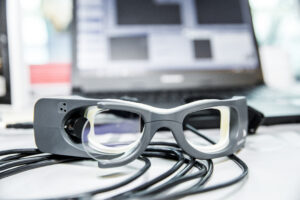 When and how to use vestibular testing when patients come to the clinic with balance problems or dizziness might not always be readily apparent. Panelists at the 2021 American Academy of Otolaryngology–Head and Neck Surgery (AAO-HNS) Annual Meeting discussed how to avoid unnecessary testing and when, exactly, tests are needed.
When and how to use vestibular testing when patients come to the clinic with balance problems or dizziness might not always be readily apparent. Panelists at the 2021 American Academy of Otolaryngology–Head and Neck Surgery (AAO-HNS) Annual Meeting discussed how to avoid unnecessary testing and when, exactly, tests are needed.
Explore This Issue
November 2021Manan Shah, MD, the session’s moderator and an otolaryngologist at the Colorado Ear, Nose & Throat Group in Lakewood, said that knowing the benefits and limitations of vestibular testing is an essential part of helping patients with balance disorders.
“Balance disorders are common—10% to 15% of the population will suffer from vertigo or dizziness, and we as otolaryngologists are the experts in our community on balance disorders,” he said.
Case Discussions
The panelists discussed three cases that illustrate common scenarios.
Case 1, Benign Paroxysmal Positional Vertigo (BPPV): Hernan Goldsztein, MD, otolaryngologist with Pacific ENT Medical Group in Carlsbad, Calif., described the case of a 60-year-old woman referred to the clinic by a nearby emergency department for vertigo, which had begun when she got out of bed that morning. The vertigo was related to her position and lasted seconds to minutes, without otological or visual symptoms. An MRI taken in the emergency room was negative. There was no recent upper respiratory tract infection or head trauma. The woman had gone to the dentist the day before.
She had a normal otological exam, with no spontaneous nystagmus, normal head thrust, and normal coordination. On a Dix-Hallpike maneuver, she was positive for geotropic rotatory nystagmus. BPPV was suspected, and an Epley maneuver was performed. The patient tolerated it well but was “violently positive” on a repeat Dix-Hallpike.
There were several possibilities in the differential diagnosis, including vestibular neuritis and Ménière’s disease. The patient was sent for vestibular testing, but everything came back normal.
The Epley maneuver was repeated and this time corrected the problem. The patient had conversion to horizontal canal BPPV canalithiasis, Dr. Goldsztein said. It turned out that the testing wasn’t necessary.
Case 2, Vestibular Neuritis: Anne Morgan Selleck, MD, assistant professor of otolaryngology–head and neck surgery at the University of North Carolina in Chapel Hill, presented the case of a 48-year-old woman who went to the emergency room with dizziness, acute onset of room-spinning vertigo, nausea, emesis, and balance issues. There were no other related issues, including no headache, changes to vision, somatosensory changes, or weakness.
Dr. Selleck said the most important first question was whether this was a case of peripheral vestibular neuritis or a central process at work. About a quarter of patients who go to the emergency room with acute vertigo have had a posterior circulation stroke, she said (Acad Emerg Med. 2013;20:986-996).
The video head impulse test is an easy test to undergo, it’s well-tolerated by young and old patients, it’s quick, it’s objective, and it examines all six semicircular canals. —Anne Morgan Selleck, MD